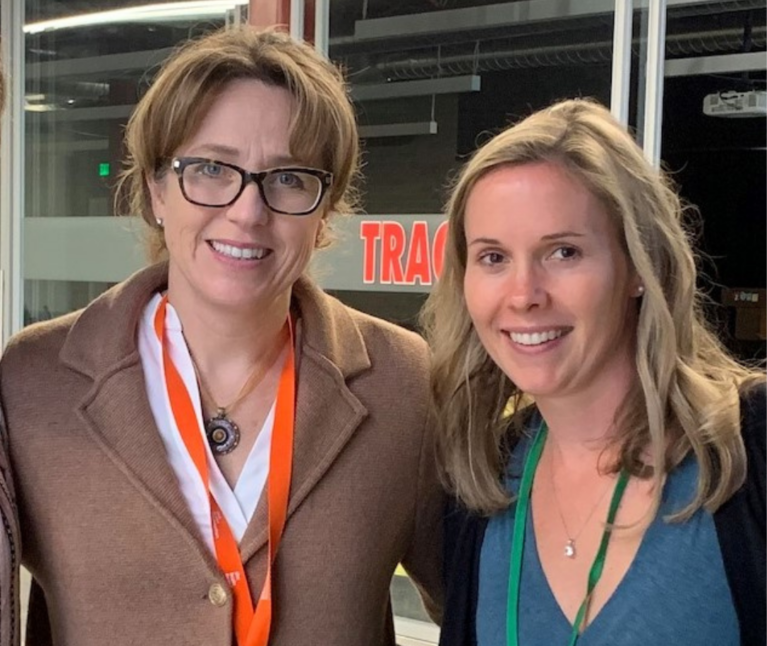For children with PANS (Pediatric Acute-onset Neuropsychiatric Syndrome), life can change overnight. PANS, an immune behavioral health condition, is often marked by the sudden onset of debilitating neuropsychiatric symptoms—a dramatic, frightening shift for patients and their families. But while urgent care is needed, barriers abound. For one, the illness can be difficult to diagnose. For another, educational gaps are common as clinicians lag behind advances in PANS research, which has burgeoned over the last decade. As a result, families often face skepticism and significant challenges when seeking informed care. Fortunately, the landscape is changing, thanks to the passionate efforts of clinicians, researchers, and organizations like Neuroimmune Foundation.
Established in 2018, the nonprofit Neuroimmune Foundation has already helped educate thousands of clinicians and built a geographically far-flung yet close-knit network of patient families. It has also provided significant funding to galvanize PANS research—and the Stanford Immune Behavioral Health (IBH) Clinic and PANS Program is a very grateful recipient. Dr. Jennifer Frankovich, who leads the clinic and research program, says, “Neuroimmune Foundation has not only helped to advance research, but even more impressively, they have made it possible for thousands of families to access care as a result of their immense clinical educational efforts.”
The Stanford IBH Clinic is the first multi-disciplinary PANS clinic in the world, providing a model for clinical care of this complex medical-psychiatric condition. Philanthropic support has been critical in enabling the Stanford IBH Clinic and PANS Program to lead advances in care, especially as early PANS research struggled to gain a foothold within the medical establishment.
Funding from Neuroimmune Foundation launched two major research initiatives led by Dr. Frankovich. The first project will deepen the field’s understanding of commonly used PANS medications by collecting data on the efficacy of DMARD (disease-modifying anti-rheumatic) drugs on over 500 patients with PANS and related conditions. Additionally, Neuroimmune Foundation is supporting a microbiome project led by Dr. Frankovich’s team in collaboration with researchers from University of California Santa Cruz. The goal of this project is to collect oral plaque from patients with PANS and related conditions (during flare episodes as well as when recovered) and compare to samples from healthy children. Plaque—which can serve as a geologic record of recent infections—will allow these investigators to identify specific microbial species that play a role in PANS and related conditions.
Anna Conkey, executive director and founder of Neuroimmune Foundation, says the organization chose to support Dr. Frankovich’s work at Stanford not only because “she is widely regarded as the foremost authority” in PANS care and research, but because of Dr. Frankovich’s generosity in sharing expertise and knowledge to move the field forward.
In addition to fueling the DMARD and microbiome projects, Neuroimmune Foundation also helped secure funding from the State of North Carolina to develop a clinical training program and materials, with the ultimate goal of expanding physician education and treatment capabilities across the country. Among other benefits, this grant will fund the first-ever PANS clinical scholar(s) at Stanford—and likely the world, helping to establish PANS as a field in which talented and curious physicians can learn to provide evidence-based care for patients with PANS and related conditions. The scholars will learn through first-hand observation at the Stanford IBH Clinic, as well as lectures, seminars, and case review sessions led by experts in the field.
Conkey says, “A primary goal of Neuroimmune Foundation is to catalyze the pace at which physicians enter the field prepared to provide thoughtful, forward-thinking care to patients with neuroimmune conditions.” To this end, Dr. Frankovich says that Neuroimmune Foundation has built a program that is “moving the needle” in addressing the immense unmet need for PANS information and care by spreading knowledge and facilitating new collaborations with clinicians and researchers in the field. Dr. Frankovich says, “We are tremendously grateful for Neuroimmune Foundation’s support, which is bringing hope and answers to families across the country and world.”
